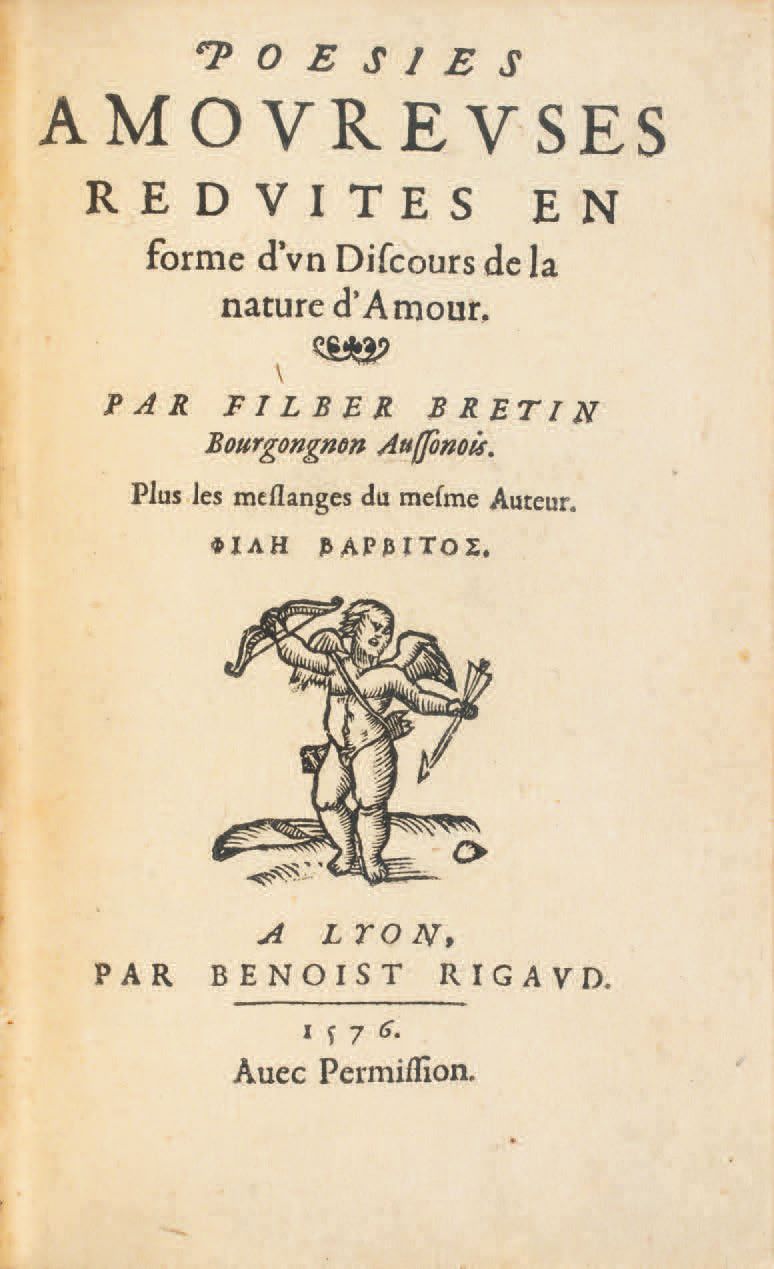Description
BRETIN (Filbert).
Ɵ Love poems reduced to the form of a Discourse of the nature of Love. Plus les meslanges. Lyon, Benoît Rigaud, 1576. In-8, turquoise blue morocco, double gilt fillet, ornate spine, inner lace, gilt edges on marble (M. Lortic). First and only edition, extremely rare, of the Poésies amoureuses of this Burgundian doctor-poet. Absent from the great poetic libraries of De Backer, Herpin, Nodier and Viollet-le-Duc, only 3 copies are reported in the CCFr (one in Grenoble, and two in the BnF, Réserve and Arsenal). Born in Auxonne around 1550, Filbert (or Philibert) Bretin was admitted to the college of physicians in Dijon, where he died in 1596. In addition to a translation of Lucian and of the Aphorisms of Hippocrates, we owe him this collection of poems in which he discusses the nature of love and its effects, evoking in detail the desires aroused by amorous passion, the troubles it raises in the mind, the sensations it provokes in the body, the true or imaginary sorrows and satisfactions that accompany it, etc. Among the significant pieces of the volume, let us quote a Chanson de l'espérance & consolation imitated from an Ode of Ronsard (f. 12), an acrostic poem in the form of an inverted pyramid revealing the name of the Lady to whom our poet addresses himself, i.e. Marguerite Chappelain (f. 27), and this interesting ode to Thevet (f. 55 v°), author of the famous Cosmographie universelle (1575) which Bretin says to have been partly written & drawn up in the house of the aforementioned Tevet, on his memoirs. The poem Origin & source of the perfection of the man deserves the attention. Bretin, who endeavors to demonstrate the poverty of human nature, because man, he says, has found himself obliged to imitate animals, concludes that the animal is superior to man: One sees by this that man, although he denies it, / Is the poorest of all that has life: / And has nothing more than the aumosne that he takes / From the animal, who teaches him all art. Achille Chereau, Parnasse médical de la France, pp. 93-94. - Baudrier, t. III, p. 332. - Diane Barbier-Mueller, Inventaire..., n°102.
You may also like
